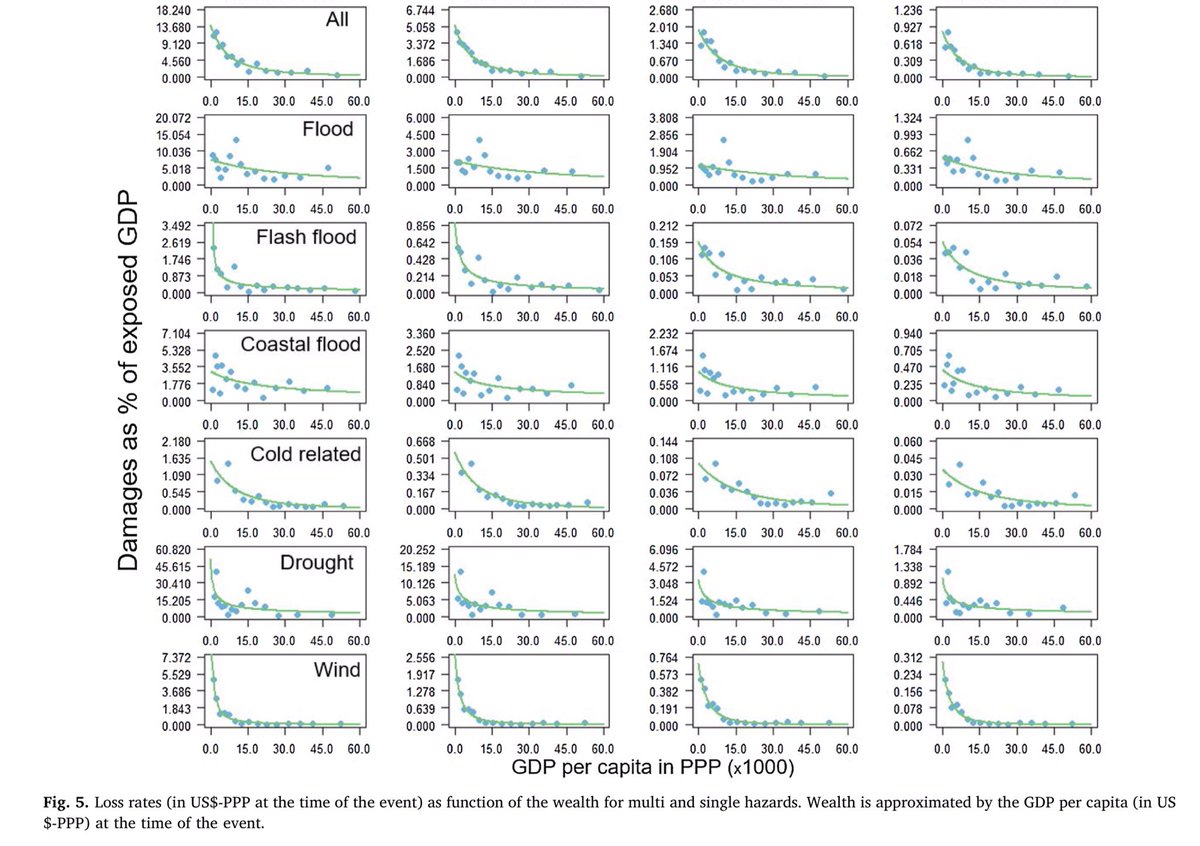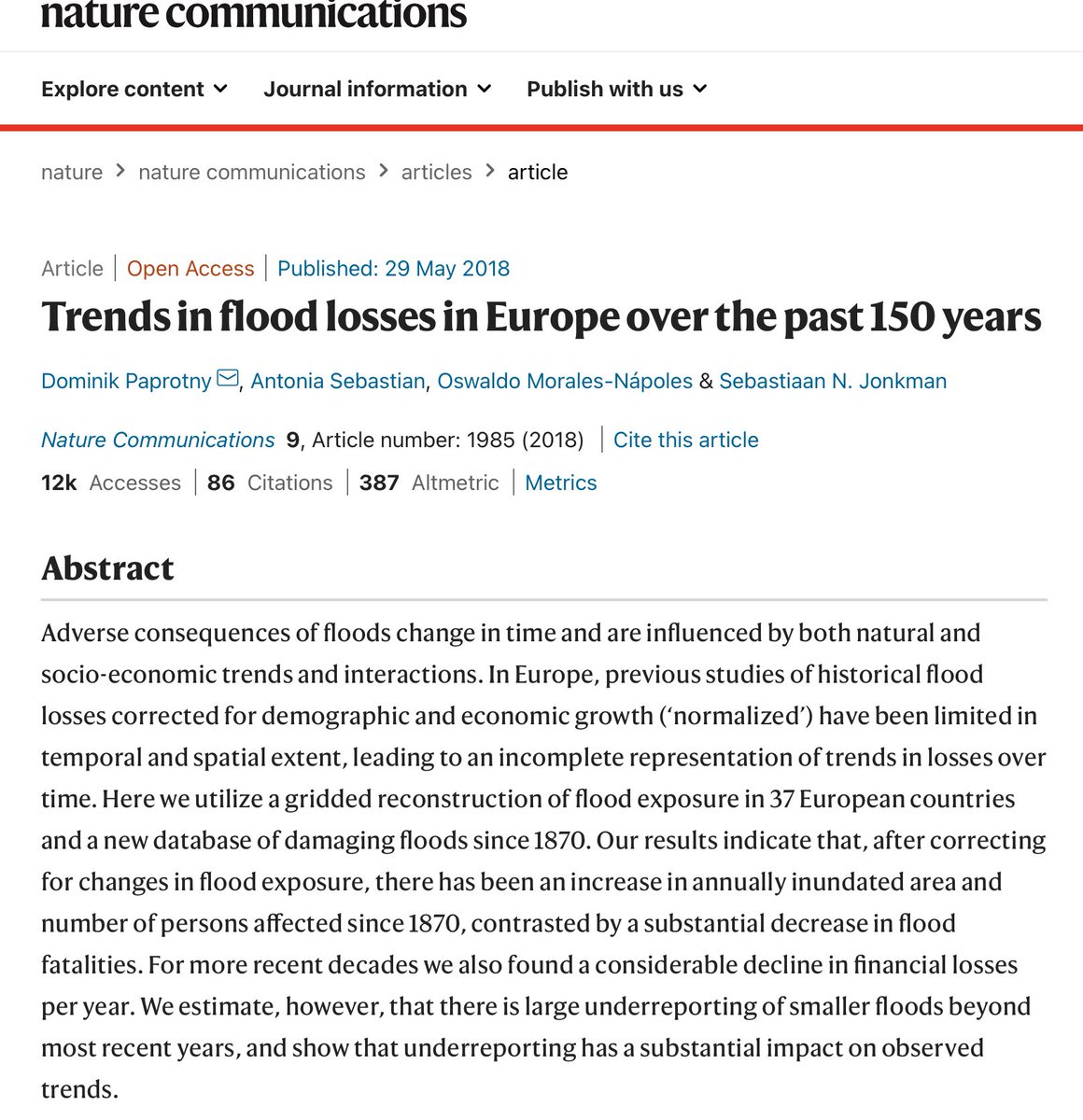
There is no doubt that attribution claims have run far out ahead of detection of trends
"Since 1951, the number of heavy rainfall days per year for the whole of Germany has hardly changed, almost independently of their definition"
mdpi.com/2073-4441/12/7…
HT @AndrewSiffert
"Since 1951, the number of heavy rainfall days per year for the whole of Germany has hardly changed, almost independently of their definition"
mdpi.com/2073-4441/12/7…
HT @AndrewSiffert
I'm not sure how the current strong attribution claims (it's obvious, right?) can be reconciled with the observational data, but I'm sure there is an explanation
If certain extreme events have become much more likely, then evidence should show them being more likely? Or not?
If certain extreme events have become much more likely, then evidence should show them being more likely? Or not?
Here is what the US NCA 2017 said about "attribution without detection"
Decreases the chances that you'll miss identifying a climate signal in a rare event, but increases the chances of falsely identifying such a signal
science2017.globalchange.gov/chapter/append…
Decreases the chances that you'll miss identifying a climate signal in a rare event, but increases the chances of falsely identifying such a signal
science2017.globalchange.gov/chapter/append…

It turns out -- and science scholars will love this -- the choice of methodology, and thus choice of result, depends upon the message one wishes to convey 

As I have argued often, if conventional IPCC detection & attribution work showed clearly increasing extremes & plausible causes, then the post-modern "event attribution" methods would be unnecessary
forbes.com/sites/rogerpie…
forbes.com/sites/rogerpie…

IPCC D&A methods have identified trends & causes in (many regions) for extreme temps & precip with various levels of confidence
But not tropical cyclones, floods, drought, tornadoes
So enter "event attribution" to fill the gap
Why? Explained below via NYT to win a PR battle
But not tropical cyclones, floods, drought, tornadoes
So enter "event attribution" to fill the gap
Why? Explained below via NYT to win a PR battle

I can think of no other area of research where the relaxing of rigor and standards has been encouraged by researchers in order to generate claims more friendly to headlines, political advocacy and even lawsuits . . .
But there you go
/END
But there you go
/END
PS. There is an absolutely awesome STS dissertation to be written based on this thread. Career prospects might be limited though 😎
• • •
Missing some Tweet in this thread? You can try to
force a refresh

















